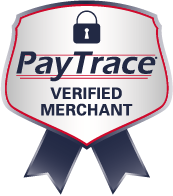Any business that has a foothold in digital marketing is probably familiar with mobile commerce apps. It’s very possible your own competitors have their own mobile apps that are utilized in different ways. As more and more people use smartphones and tablets on a regular basis, companies can use mobile apps for a variety of purposes.
For example, some mobile apps might be designed to sell items, while others are constructed to build a better user experience. Most businesses could benefit from having a mobile app in some form, but that doesn’t necessarily mean you should go out and fund your company’s mobile app development. There are pros and cons to an app, and it largely depends on your company’s current circumstances. Here’s a quick overview of mobile apps for the small business.
The Decline of Mobile Browsers
If your company targets mobile consumers heavily, mobile device usage trends are very important. As far as accessing the Web goes, mobile browsers are in heavy decline. The main reason for this is because consumers often frequent the same online websites, and instead of accessing the mobile Web page, a mobile app is more convenient–and user-friendly.
If you have a large base of repeat consumers, a mobile app can be much more reliable in attracting their business than if you make them go through a mobile browser. Keep in mind that the mobile app is also more visible on their devices, giving you a little free brand promotion each time they open up their smartphone or tablet.
And that’s just one of several benefits mobile apps offer.
Why Mobile Apps are Good for Businesses
The main reason businesses consider apps–at least from a functionality standpoint–is that apps are fully customizable. In a web browser, you are restricted by the browser’s functionality, which can reduce your overall features and inhibit its user-friendliness. When you build an app, you can build the entire platform from the ground up, which is critical if you want to give users a unique experience.
Mobile apps can also integrate with other apps, including social media. If you’re looking to build brand visibility through a mobile app, allowing users to tweet or post to Facebook about their app experience can build that reputation while attracting new users.
Alternatively, businesses may choose to drive commerce through their apps. Having a dedicated app for e-retail purposes helps simplify the shopping process by keeping users logged in, securely storing their user preferences and payment info, and streamlining the shopping process. No matter what your goals, an app will most likely offer a better experience for both the business and its consumers.
Weighing the Costs of App Development
If mobile apps offer so many opportunities to businesses, why isn’t a dedicated business app a no-brainer? Almost always, the primary deterrent is cost. Depending on your interests, mobile app development is a costly affair. A single app may cost $10,000 or more. While some cheaper app development options may exist, these are usually a high-risk move since the quality and functionality will be bargain-rate, essentially dissolving much of the app’s benefit in the first place.
The exact cost can depend on how you want to utilize your app, but unless your mobile app is essential to your company’s success, it’s usually better to wait until you have an established consumer base and the ability to drive mass downloads quickly. Otherwise, you’re building a product hoping consumers will come–and that’s never a guarantee.
A mobile app is a great asset for any business, but it needs to be implemented only when you have a good financial outlook. If you’re ready to adopt a mobile app or any other part of your digital strategy, contact DBC Digital today.


